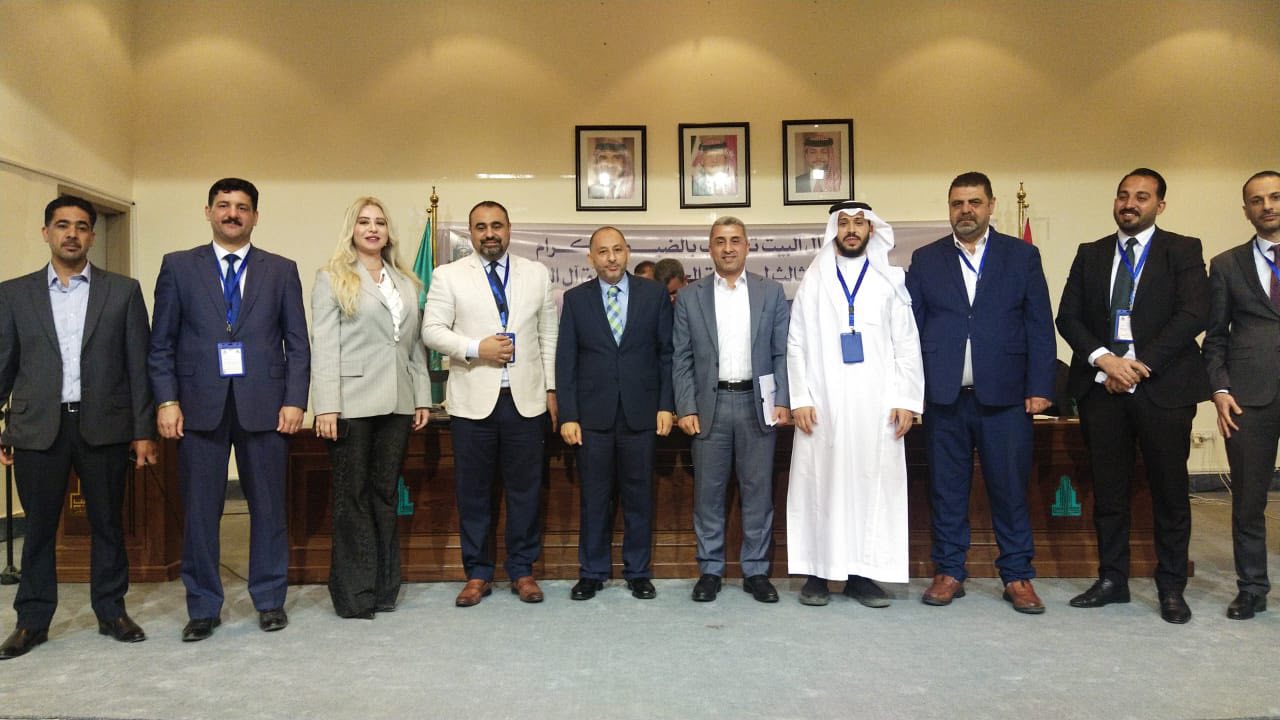University President Professor Dr. Osama Nusair attends the second session of the conference in the Prince Hassan bin Talal Auditorium

In the presence of the University President, Professor Osama Nusair, the second session of the conference was held in the Prince Hassan bin Talal Amphitheater, moderated by the Vice President of Yarmouk University, Professor Yousef Obeidat. It addressed the dimensions of artificial intelligence in the criminal field, amidst a remarkable legal and academic presence.
The session began with a paper by Sandrella Merhej, a lawyer and researcher in international criminal law from Lebanon, entitled "Artificial Intelligence and the Preemptive Prevention and Prediction of Crime." She discussed the potential of artificial intelligence in combating crime and analyzing its patterns, as well as the legislative challenges and ethical concerns associated with the use of these technologies. Merhej concluded with a set of recommendations at the international and local levels to promote the safe and effective use of this technology.
For his part, Dr. Faisal Koukaz Al-Mohammadi from Iraq presented a scientific paper entitled "Predictive Justice: Advantages and Risks," in which he pointed out the need for judicial prediction techniques to remain subject to the supervision of human justice, stressing that the majority of judges prefer these tools to be supportive and not a substitute for the authority of the judge.
Dr. Mahmoud El-Sherif from the Arab Republic of Egypt spoke about "Virtual Simulation as a Means of Proof before the Criminal Judge," reviewing the first legal incident that occurred in the US state of Florida, where the judge agreed to present a murder incident using virtual simulation technology.
Dr. Rasha Ali El-Din from Egypt discussed "Criminal Trial: A Study of the Most Important Global Experiences," addressing the legal and ethical challenges in applying artificial intelligence within trial procedures, pointing to the growing human concern about the impact of these technologies on criminal justice.
Dr. Mubarak Al-Khalidi from the Kingdom of Saudi Arabia concluded the session with a research paper entitled "The Impact of Artificial Intelligence on Preparing Evidence in the Saudi Judiciary." During the presentation, he reviewed the mechanisms for presenting evidence before judicial circuits, noting that the positives outweigh the negatives, despite the potential bias resulting from algorithms.
The session was characterized by a deep scientific discussion between researchers and attendees, focusing on the importance of balancing technological progress and maintaining legal guarantees and individual rights.